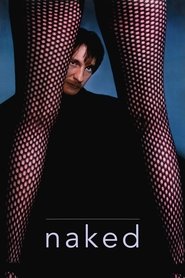Peak Thatchercore. A mix of After Hours and The Mother and the Whore. Difficult to shake the observation that, thirty years on, the state of British housing hasn't improved much at all. I can also see the influence on 28 Days Later and Children of Men.
Johnny is a working-class drifter and Dostoyevskean-style intellectual. [He] is destructive and self-destructive, a literate monologist whose anger and sadism act as much stronger forces within him than his capacity fo concern. It's women who bear the brunt of his physical and emotional rage, who suffer in being casually manhandled, insulted and rejected by him.
— Simon Channing-Williams (Film Quarterly)
This is the rhythm of Johnny’s discussions: Endless, drawn-out questions that taper into confused expressions, searching for an audience rather than a conversation. Leigh’s version of the apocalypse is a place where communication is impossible and paths of conversation are frozen solid.
— Anna McKibbin (Paste Magazine)
The film is hardly a plea for socialized health care; if anything, Johnny’s unkempt irascibility seems to have been selected by nature as an expedient defense mechanism. Leigh’s screen traffic has political overtones, to be sure, just as it has romantic ones; intimate moments between Johnny and ex-girlfriend Louise (Lesley Sharp) nearly classify Naked as a breakup film. At the smoldering core, however, Naked is most indelibly a complexly loving humanist polemic scrawled in piss and vinegar.[…]
There are those who will stop short of demonizing Johnny and those who see in him a frenzied funhouse mirror. Despite our differing approaches to intercourse, there are discomfiting similarities between the manner in which Johnny and myself are socially “received,” though I imagine that most intellectual misfits can parse themselves in some fashion through Thewlis’s performance. The film clearly wants us to internalize Johnny’s experiential perspective: The detachedly innocent handheld work of the opening grows slicker and more fluid throughout the running time, and by Johnny’s silhouetted eschatological monologue, the curious, upward tilting angles seem subtly informed by his mania.
— Joseph Jon Lanthier (Slant Magazine)

